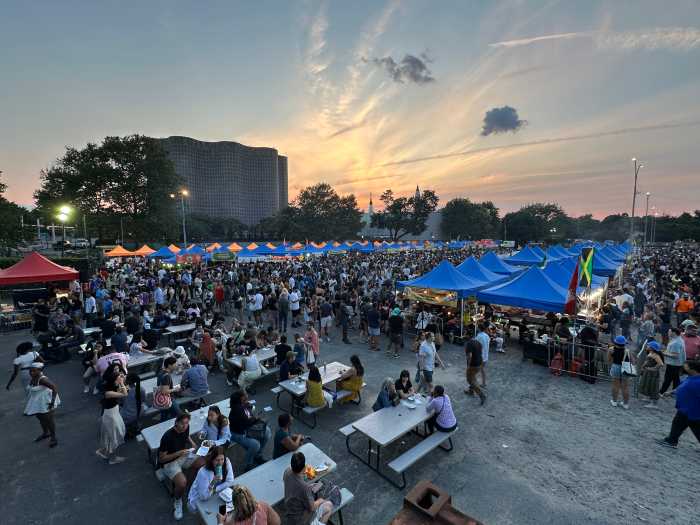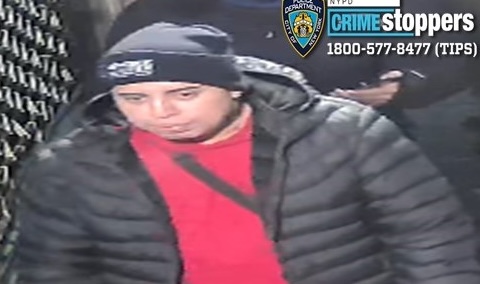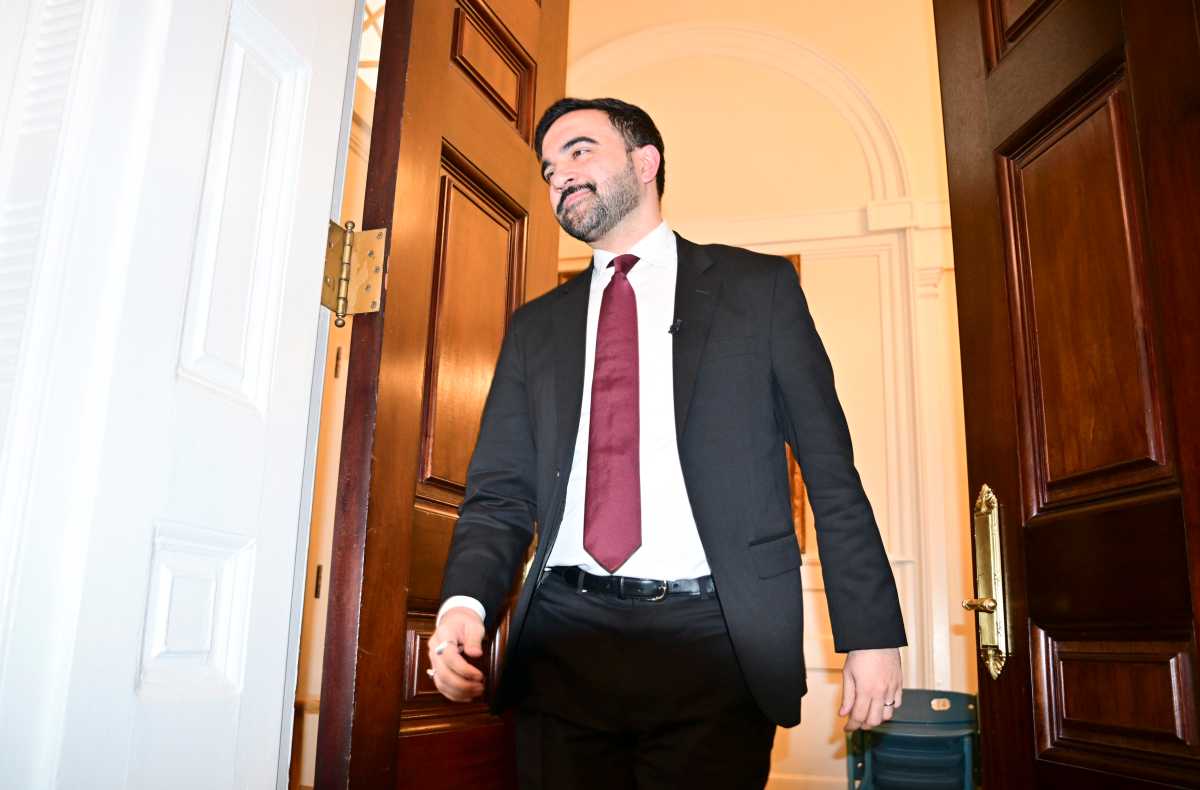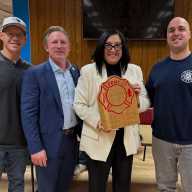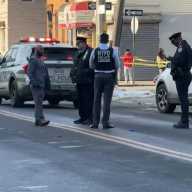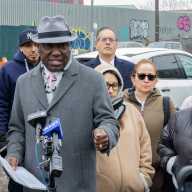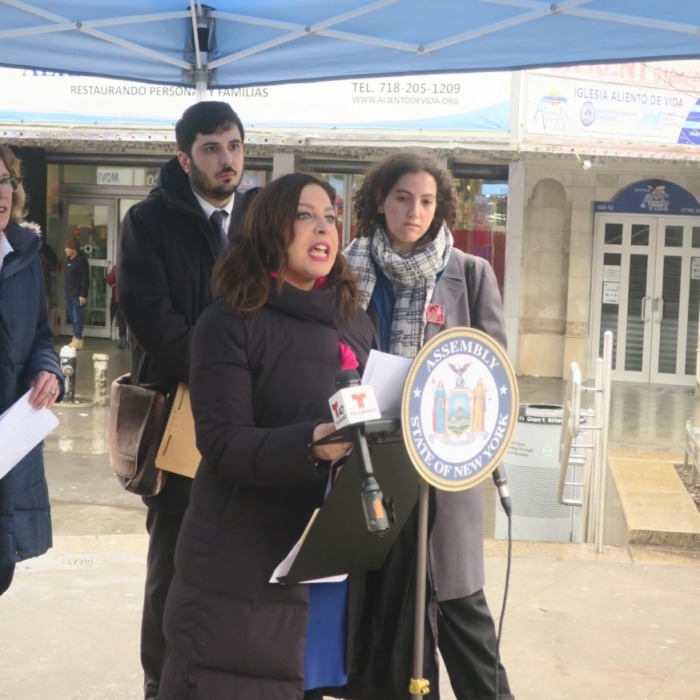
NY Assemblymember Jessica González-Rojas at the press conference Thursday. (Photo provided by the office of Assemblymember Jessica González-Rojas)
Jan. 26, 2024 By Czarinna Andres
Assemblymember Jessica González-Rojas and advocates held a rally in Corona Plaza Thursday to draw attention to legislation that she has introduced, that aims to provide assistance to non-citizen victims of human trafficking, domestic violence, and torture.
The bill, which is being called the New York Connect and Recognize Every Survivor (CARES) Act, would extend critical temporary assistance and medical help to undocumented victims of such brutal crimes. González-Rojas is the Assembly sponsor of the bill that was introduced late last year.
González-Rojas, who represents western Queens and is the Assembly’s sub-committee chair on human trafficking, was joined at the rally by state Sen. Cordell Cleare from Manhattan, who is the senate sponsor. They emphasized the critical importance of assisting these victims, many of whom are undocumented.
“Human trafficking is a despicable crime, and we must do everything in our power in New York to combat it,” stated González-Rojas. “During this human trafficking awareness month, Senator Cleare, advocates, and I urge our legislature to pass the CARES Act to provide essential support to noncitizen crime victims. Addressing this human rights violation means connecting all survivors to necessary resources for stabilizing their lives,”
Echoing this sentiment, Cleare highlighted the vulnerability of non-citizens in New York, emphasizing the necessity of a comprehensive approach, like the CARES Act, to combat human trafficking.
The event drew a diverse group of attendees and speakers, including legal and advocacy experts from the Legal Aid Society, Latino Justice PRLDEF, Northern Manhattan Improvement Corporation (NMIC), Her Justice, Covenant House and The Anti-Violence Project. Several of which have written letters of support to this bill.
Christine Clarke, chief of litigation and advocacy at Legal Services NYC, said providing public benefits to these undocumented crime victims could save lives.
Anita Teekah of LatinoJustice PRLDEF stressed the bill’s role in preventing additional trauma caused by food insecurity, inability to work, and lack of medical care for non-citizen survivors.
As New York State considers the CARES Act, it aligns itself with states like California and Illinois in recognizing the need for compassionate and practical support for crime survivors, especially those without citizenship.
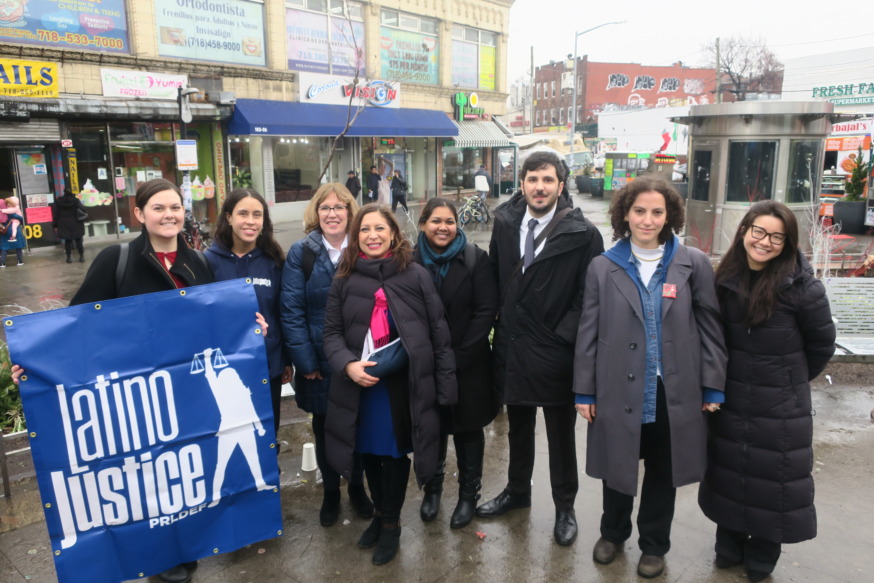
(Photo provided by Assemblymember Jessica González-Rojas)

